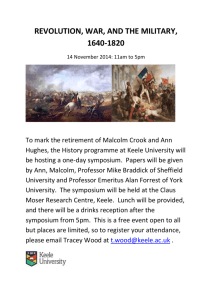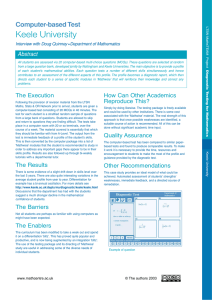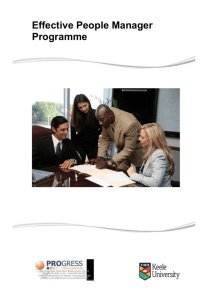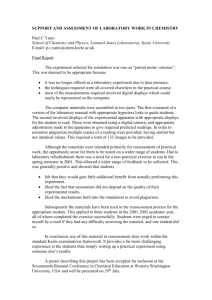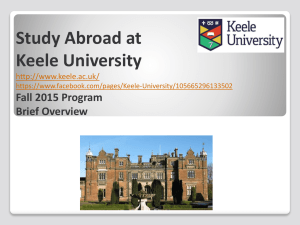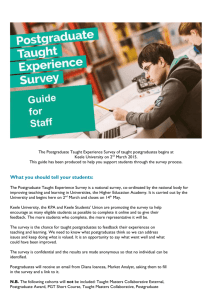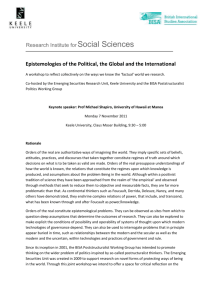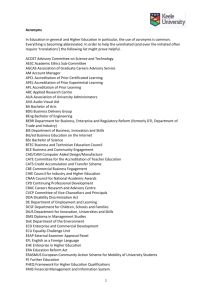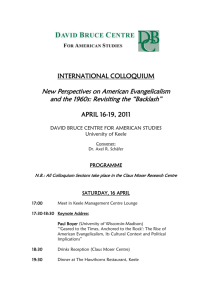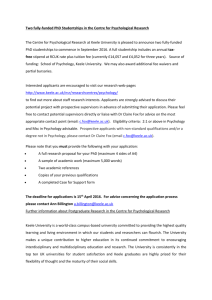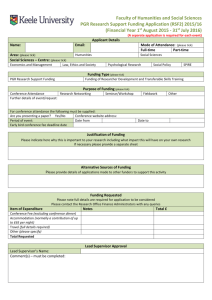Humanities Postgraduate Research Student Symposium 12 June
advertisement
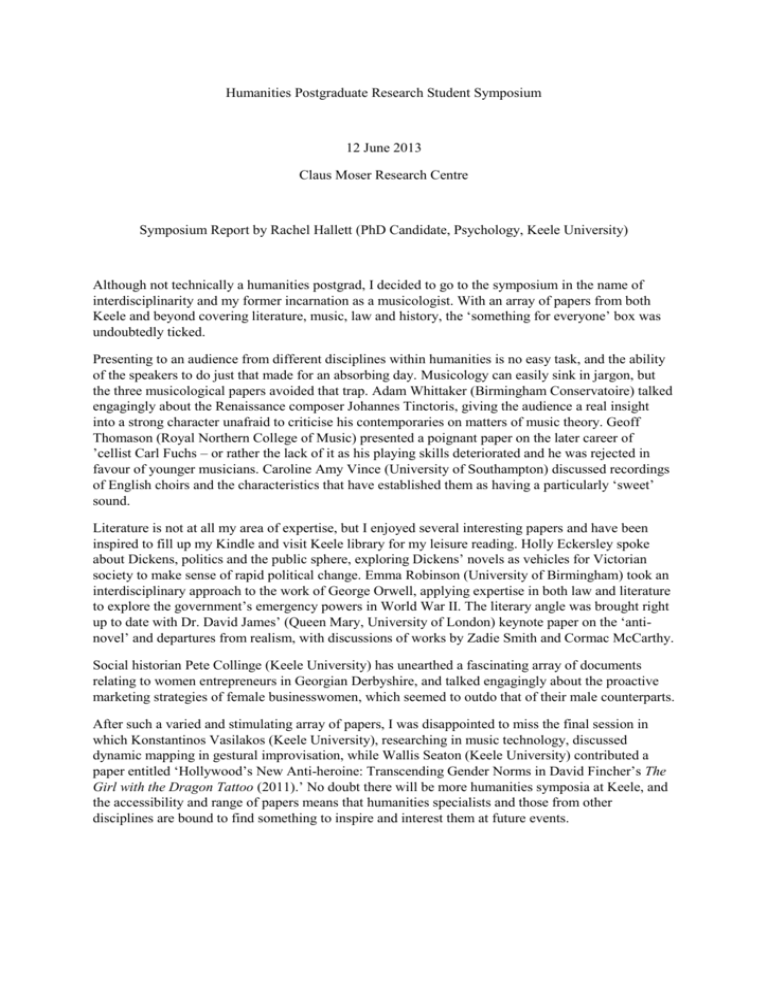
Humanities Postgraduate Research Student Symposium 12 June 2013 Claus Moser Research Centre Symposium Report by Rachel Hallett (PhD Candidate, Psychology, Keele University) Although not technically a humanities postgrad, I decided to go to the symposium in the name of interdisciplinarity and my former incarnation as a musicologist. With an array of papers from both Keele and beyond covering literature, music, law and history, the ‘something for everyone’ box was undoubtedly ticked. Presenting to an audience from different disciplines within humanities is no easy task, and the ability of the speakers to do just that made for an absorbing day. Musicology can easily sink in jargon, but the three musicological papers avoided that trap. Adam Whittaker (Birmingham Conservatoire) talked engagingly about the Renaissance composer Johannes Tinctoris, giving the audience a real insight into a strong character unafraid to criticise his contemporaries on matters of music theory. Geoff Thomason (Royal Northern College of Music) presented a poignant paper on the later career of ’cellist Carl Fuchs – or rather the lack of it as his playing skills deteriorated and he was rejected in favour of younger musicians. Caroline Amy Vince (University of Southampton) discussed recordings of English choirs and the characteristics that have established them as having a particularly ‘sweet’ sound. Literature is not at all my area of expertise, but I enjoyed several interesting papers and have been inspired to fill up my Kindle and visit Keele library for my leisure reading. Holly Eckersley spoke about Dickens, politics and the public sphere, exploring Dickens’ novels as vehicles for Victorian society to make sense of rapid political change. Emma Robinson (University of Birmingham) took an interdisciplinary approach to the work of George Orwell, applying expertise in both law and literature to explore the government’s emergency powers in World War II. The literary angle was brought right up to date with Dr. David James’ (Queen Mary, University of London) keynote paper on the ‘antinovel’ and departures from realism, with discussions of works by Zadie Smith and Cormac McCarthy. Social historian Pete Collinge (Keele University) has unearthed a fascinating array of documents relating to women entrepreneurs in Georgian Derbyshire, and talked engagingly about the proactive marketing strategies of female businesswomen, which seemed to outdo that of their male counterparts. After such a varied and stimulating array of papers, I was disappointed to miss the final session in which Konstantinos Vasilakos (Keele University), researching in music technology, discussed dynamic mapping in gestural improvisation, while Wallis Seaton (Keele University) contributed a paper entitled ‘Hollywood’s New Anti-heroine: Transcending Gender Norms in David Fincher’s The Girl with the Dragon Tattoo (2011).’ No doubt there will be more humanities symposia at Keele, and the accessibility and range of papers means that humanities specialists and those from other disciplines are bound to find something to inspire and interest them at future events.
